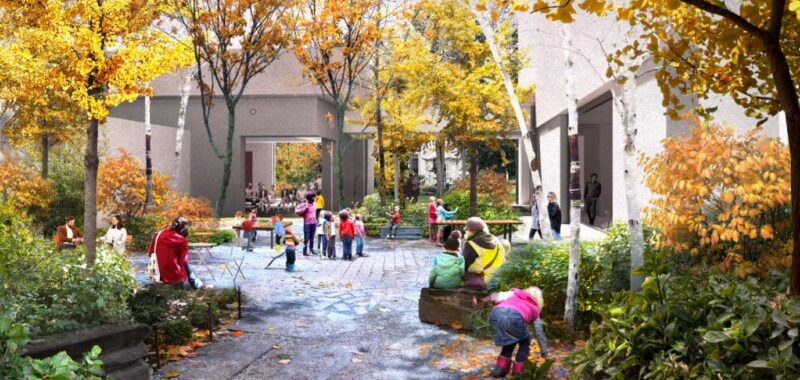It’s been almost three years since Azadeh Rashidi and Paul Schulhof set off on their own. The pair previously worked at Tod Williams Billie Tsien Architects on commissions such as David Geffen Hall and the Obama Presidential Center. Today, Rashidi and Schulhof operate their own New York–based practice, Schulhof Rashidi Architects, and the firm is currently designing two substantial museum projects in Abingdon, Virginia; and Dubuque, Iowa.
“We’ve mostly done cultural, educational, and residential work. Massive projects, like Geffen Hall and the Obama Presidential Center, have been big parts of who we are as architects,” Schulhof told AN. “We knew we wanted to keep doing this work, but also explore other projects and clients.”
“I think we’ve had a desire to work on a different scale of projects,” Rashidi shared. “We wanted to shift scales onto more medium-sized regional works where the community can be directly engaged in the design process. We’ve been very lucky in our first two projects because they really live up to these desires.”

Dubuque Museum of Art
Forty-three firms threw their names in the hat to design the Dubuque Museum of Art (DuMA) in the small Iowa city with just under 60,000 people, but only one prevailed. Schulhof Rashidi Architects was named the project architect in 2023.
Before design began, Schulhof and Rashidi met with a wide range of stakeholders including museum staff, civic leaders, and residents. Local artists, parents, activists, educators, retirees and young professionals formed an advisory committee that worked with the architects as well.
Today, DuMA is in schematic design. The result of this collaboration is an attractive multi-story museum in the heart of Dubuque, not far from the city’s Washington Park. Clerestory windows pop up from the roof plane, both flooding the interiors with natural light and providing a unique architectural exterior feature that will make DuMA a landmark.

“We had never been to Dubuque before,” Schulhof said. “We went there without an invitation to get a good sense of the context and collection. It was an in-depth visit.” Schulhof continued: “It was important for us to think about ways of getting the community involved, and expanding visitorship. That meant it was important to listen to people who weren’t coming to the museum, and understand what would draw them in.”
William King Museum of Art
Abingdon, Virginia, is a town of 8,000 people about 130 miles southwest of Roanoke. There, Schulhof Rashidi Architects is designing the William King Museum of Art, a visual arts and cultural heritage museum that will soon host the Worrell Collection of Art. It will also be the only source for arts education in that part of Appalachia.

The project is dual faceted: Schulhof Rashidi Architects was tasked with both designing a new 10,000-square-foot building as well as adaptively reusing an old school building at the highest point of elevation in Abingdon.
For Rashidi, her experience working on the New York Philharmonic Administrative Center’s renovation and the Hood Museum at Dartmouth made the firm well suited for such an undertaking. “My past projects have all been renovations of sorts.” Rashidi said. “The William King Museum of Art is an adaptive reuse project, but it also entails giving the museum a new presence.”
The new building by Schulhof Rashidi Architects will be 3 stories and contain a connecting bridge linking it to the main museum. It will have a new lobby, cafe, museum store, and art receiving and storage space. It will also have a significant landscape design portion. Together with Wolf Josey Landscape Architects, Schulhof Rashidi Architects ideated a sculpture garden, pollinator garden, sensory garden, hiking paths, seating areas, and an amphitheater for the site.

“When we launched our studio several years ago, our vision was to build on the cultural work that has defined our careers, while reimagining how to collaborate with and empower the communities we serve,” Schulhof noted. “We were fortunate to begin with commissions for two museum projects that are deeply connected to their local communities. By leveraging our past experience, we’ve been able to support our clients as they seek to create enduring regional institutions.”

